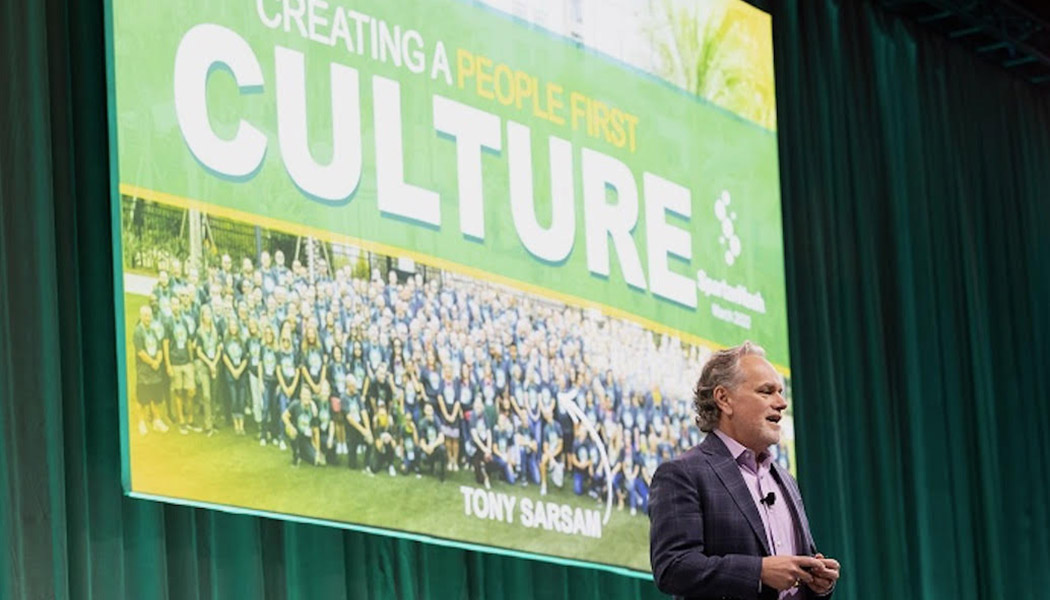If the start of a great journey begins with a single step, the same can be said for great conversations. A single phrase expressing a unique idea can start a dialogue that just keeps growing, expanding in all directions. That’s the power and potential of People First.
This unifying idea is one we live and breathe at SpartanNash, and I’ve been a big fan and advocate for the approach my entire career. People First reflects the core belief that, as we continuously look for ways to work better and build for the future, our starting point is the investment we make in each other. These two words serve as a reference point everyone can use for setting priorities and making decisions, and I’m working hard with leaders at all levels to bring it to life. It shouldn’t be our only filter for decision-making, but People First tells us the primary question we must ask when faced with a choice – “How does it affect our people?”
Years ago, I worked at Dreyer’s Ice Cream. Former CEO and chairman Gary Rogers was a big advocate for building corporate culture around people. In his obituary, which you can read in its entirety on the Rogers Family Foundation website, it describes Dreyer’s as having “a culture based on empowerment,” where “every person felt a personal responsibility to ‘make a difference.’” This kind of high-performance culture based on meaningful, engaging work is what we’re working toward at SpartanNash.
Are there nuances to clarify or even misconceptions about People First? Sure. And that’s the point. People First gets us talking to more closely define how we work together to win as an organization. It’s a conversation that keeps getting better and more meaningful over time. For example, People First isn’t about trendy perks or always doing the thing that will make Associates happy. Instead, it means we’re making a longer-term commitment to recognize and value each other for the great things we do day after day.
Which has greater long-term value, for instance, a one-time gift card as a holiday present for Associates or a party that brings everyone together to connect and make lasting memories? People First puts the emphasis on “we,” not just “me,” and serves the greater good. It helps build a positive, inclusive culture in which everyone can belong and thrive. Celebrations embody the spirit of People First.
Another example of People First involves having courageous conversations. When I first arrived at SpartanNash, the company’s performance hadn’t been stellar. Yet, during annual performance reviews, the vast majority of Associates were initially rated as meeting or exceeding performance expectations. Something didn’t add up. We can’t all be doing that great if the company isn’t meeting all of its goals. We recalibrated how we evaluate ourselves and the company’s performance that year. Candid feedback is People First; after all, if we never know how we can improve, how do we grow?
The phrase People First is both practical and inspirational, and it’s amazing how fast it catches on in an organization. I know the idea is working its magic when people start making decisions based on how they affect their team and the company as a whole.
As with all collective endeavors, the more we talk things through and really listen to each other, the farther we’ll go. Helping others feel valued and recognized for their work, providing helpful feedback to help co-workers improve, and rewarding winning performance are all ways that we can live this culture on a daily basis. People First points the way.
